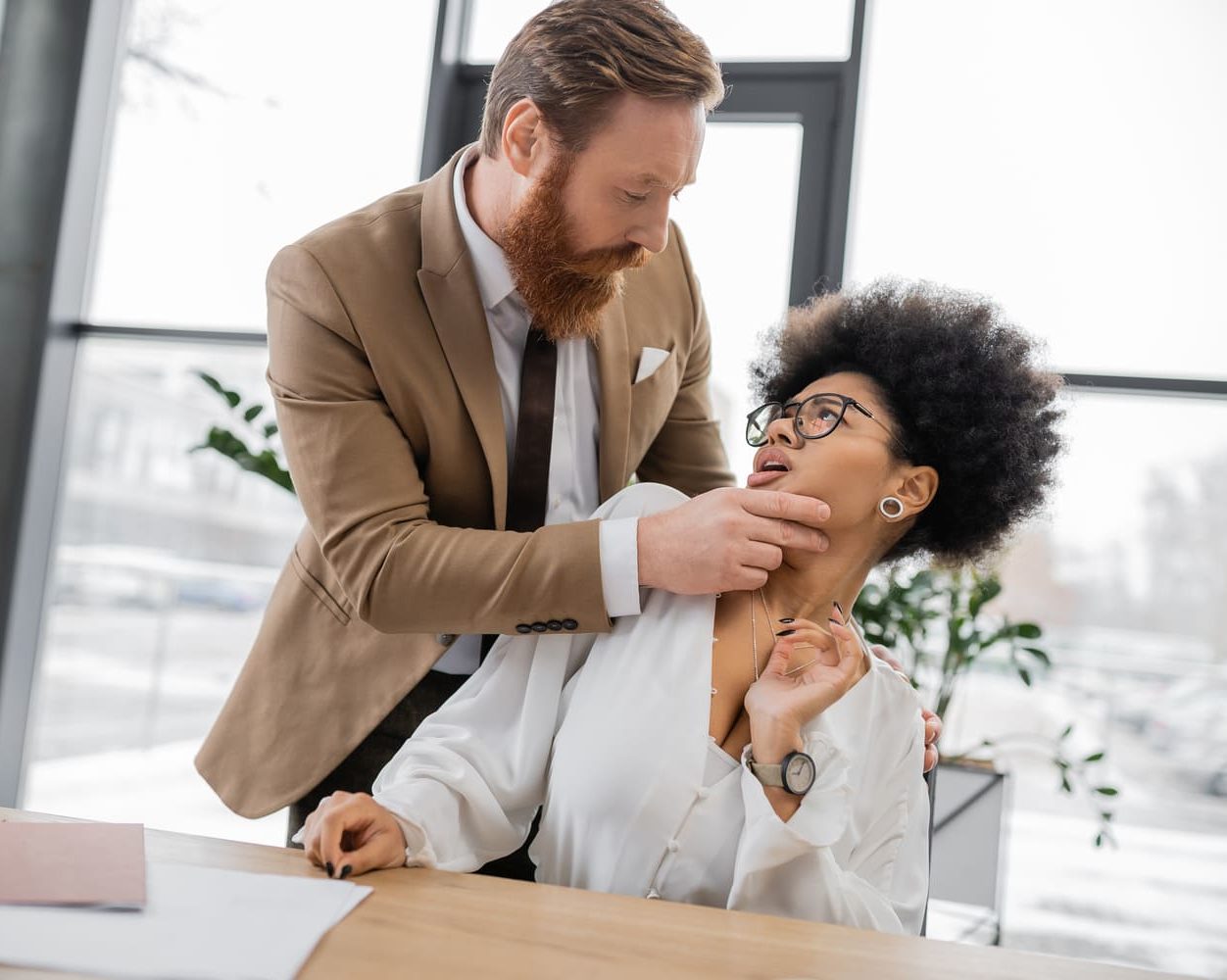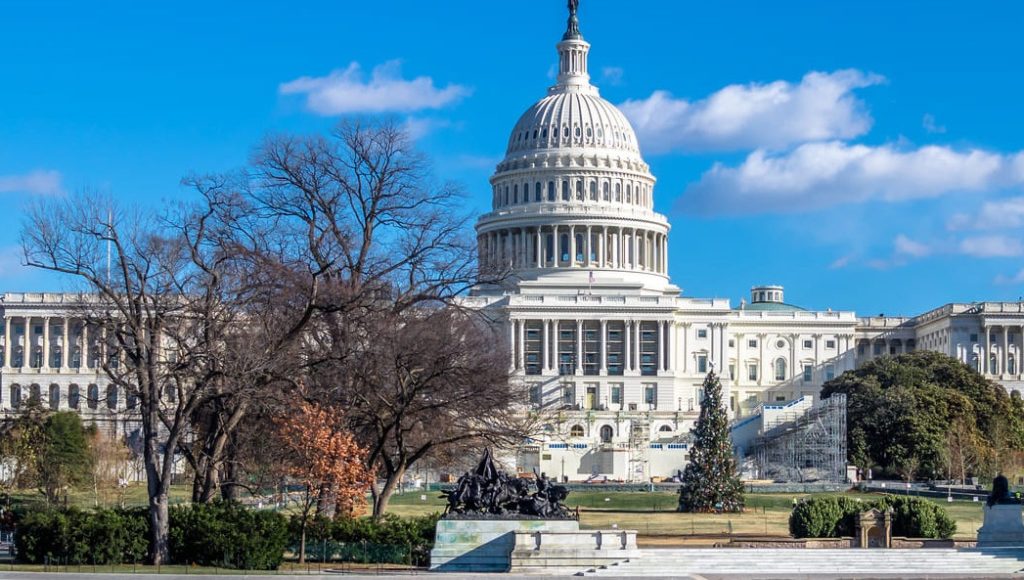
The Fee Is Free Unless You Win.
Top Rated Employment Law Firm
Protecting Families Since 1995
$450 Million Won
TABLE OF CONTENTS
Office holiday parties or events are a time to celebrate accomplishments and connect with colleagues. However, the relaxed atmosphere, combined with alcohol, can sometimes lead to blurred boundaries and inappropriate behavior. Sexual harassment at these events is a serious issue and knowing your rights and options can help you stay prepared and protected.
Sexual harassment is not limited to the office. It can occur at work-related events held offsite, such as restaurants, office holiday parties, hotels, corporate retreats, conventions, and virtual events. You are protected under federal and state laws against harassment and discrimination at all work events—whether they are on-site, off-site, or remote. Harassment based on race, gender, religion, or any protected class is illegal—even at holiday parties. You have the right to feel safe, respected, and valued in every workplace setting.
Sexual harassment includes any unwelcome sexual advances, comments, or actions that create an uncomfortable or hostile environment. When an employer, CEO, supervisor, manager, co-worker, or non-employee approaches an employee with unwanted physical contact or creates an uncomfortable and sexually charged environment at an office holiday party or high-profile corporate function, the employee has become a victim of sexual harassment at that event.
Whether the event is held at the office, a luxury venue, or another location, there is an expectation that no employee should be subject to such behavior.

Unfortunately, even in the age of the #MeToo movement, this fact is easily forgotten, and office holiday parties can quickly get out of hand. At holiday parties, corporate gatherings, high-profile office events, or company-sponsored celebrations, this could involve:
Discover how our expertise has helped clients overcome their legal challenges and achieve successful outcomes.
View All TestimonialsOlivia is the best! Oliva was very thorough, patient, and very detailed and descriptive regarding the process. She was very supportive of my sexual harassment case. From the very beginning, she communicated and would provide me with any updates and she was always available when I needed anything. More importantly, she always extended that comfort level of trust which always made me feel at peac... Read Full Testimonial
Casey Barkhordarian is a fabulous attorney to work with. He explained everything to me about the case (including the millions of questions I asked) right from the start of our very first meeting. He did so in a way that I could understand and was very prompt and clear with communication the entire time. Casey Barkhordarian is a very competent and knowledgeable lawyer to have on your team. I def... Read Full Testimonial
Matt Finkleberg is by far the best attorney I’ve ever hired! From the outset, it was evident that he was not just another lawyer; Matt is nothing short of extraordinary. He possesses the ability to do his job phenomenally while somehow managing to give me hope during one of my darkest of hours. Matt consistently returned my calls promptly, regardless of my questions, confusion, or self-doubt ... Read Full Testimonial
I cannot speak highly enough about my experience working with Matt Finkelberg. From the very beginning, Matt approached my case with an incredible level of professionalism, knowledge, and dedication that immediately put me at ease. It is rare to find an attorney who not only possesses an impressive depth of legal expertise but who also truly cares about the well-being and best interests of thei... Read Full Testimonial
Olivia is absolutely outstanding! She understands the emotional side of your case while being able to find the legal aspects of holding the employer accountable for breaking the law! Made a really terrible situation a little easier by explaining everything and helping me get everything in order and in the right hands. I would not use anyone else! Call them for any sexual harassment case... You ... Read Full Testimonial
This law firm is absolutely amazing!!! They went so above and beyond for me!!! I am so grateful for all their help with my difficult case!!! If you need a lawyer, you will be in great hands with their firm!!! And wait until you see the office! The building is so high tech I couldn't figure out how to get in the elevator lol!
It was a pleasure to have Casey represent and help me for my employment case. It was my first time needing an attorney, so I was a bit apprehensive at first – Casey took the time to answer all of my questions and fully explain everything to me, which really put me at ease. He was very attentive, supportive, and knowledgeable throughout the whole process – Casey would ask questions to ensure... Read Full Testimonial
matt is an excellent attorney. he handled my case with the utmost care and highly exceeded all expectations. i could not recommend derek smith and esp. matt finkelberg enough
matt is an excellent attorney. he handled my case with the utmost care and highly exceeded all expectations. i could not recommend derek smith and esp. matt finkelberg enough 🙂
Matt handled a suit against the City of LA and members of the a Neighborhood Council for racial discrimination and harassment. Ths was the first suit of this type filed on a Neighborhood Council Matt handled it with poise and above all professionalism. He walked me through the 3 year process and above all provided moral support and encouragement as I still experienced racism and harassment duri... Read Full Testimonial
Matt Finkelberg is Amazing and Devotional! It was a pleasure to have Matt represent me for my employment case. He was very attentive, supportive, and knowledgable throughout the whole process. Whenever I reached out he responded promptly which I greatly appreciated. Matt fought diligently and hard throughout my case to make sure my case was represented best. Thank you again Matt for everything.... Read Full Testimonial
It was a pleasure to have Casey represent and help me for my employment case. It was my first time needing an attorney, so I was a bit apprehensive at first – Casey took the time to answer all of my questions and fully explain everything to me, which really put me at ease. He was very attentive, supportive, and knowledgeable throughout the whole process – Casey would ask questions to ensure... Read Full Testimonial
Empower your voice and take action against sexual harassment in every workplace, community, and home.
Experiencing harassment at a work event can be overwhelming, but you are not alone. Employees are protected under federal and state laws. Here are the steps to protect yourself and build your case:
Important Deadlines:
Take Action Today: Harassment at workplace events is illegal, and employees deserve justice. Contact our experienced employment attorneys at 800-807-2209 for a free confidential consultation to protect your rights and hold your employer accountable. We represent clients nationwide, including in New York City, Philadelphia, Miami, Los Angeles, San Francisco, and more.
Many employees wonder whether their jobs are at risk after speaking up about inappropriate behavior. If you are an employee who was fired after reporting harassment that occurred at a work event, you may be facing retaliation, which is illegal under federal and state laws.
Employers are prohibited from punishing employees for reporting harassment, whether it takes place in the office or at an off-site event like a holiday party, networking event, or team outing. Employees have the right to report inappropriate behavior without fear of losing their jobs or facing other forms of retaliation.

If you believe you were wrongfully terminated for speaking up, you may have grounds to take legal action. Do not wait to protect your rights. We provide a free, confidential consultation to discuss your case and help you take the next steps. Call us today at 800-807-2209 to speak with an experienced employment attorney.
Employers have a legal responsibility to create a safe and respectful environment at all work-sponsored events, including office parties. Employers must follow State’s mandatory sexual harassment training laws and clearly outline disciplinary actions for violations at company-sponsored events.
If you experienced harassment, it is important to know that employers are required to:
If your employer failed to meet these responsibilities and you faced harassment at office event, you may have grounds to take legal action. Speak with an experienced employment attorney to protect your rights.
If you are an employee who experienced sexual harassment at an office party, you have legal rights and options. The experienced attorneys at Derek Smith Law Group, established in 1995, have recovered over $400 million for clients facing harassment and workplace discrimination. We proudly serve clients nationwide, including major cities like New York City, Philadelphia, Miami, Los Angeles, San Francisco, and more, offering compassionate and effective legal representation.
We Offer:
Sexual harassment at office parties should never be ignored. You deserve justice and a safe work environment. Call the Derek Smith Law Group today at (800) 807-2209 for a free consultation. Let us help you fight for your rights and seek the compensation you deserve.
Yes. Company-sponsored events are considered an extension of the workplace, and harassment during these events is covered under workplace harassment laws. Employers are responsible for maintaining a harassment-free environment even outside the physical office space.
Yes. Employers are still liable for harassment that occurs at work-related events, even if they are held off-site. This includes venues such as banquet halls, restaurants, or conference spaces.
The amount of time you have to file a claim for harassment depends on both federal and state laws. Under federal law, the Equal Employment Opportunity Commission (EEOC) generally requires you to file a charge within 180 days of the harassment incident. However, this deadline extends to 300 days if your state has its own anti-discrimination laws, such as in New York, Florida, Pennsylvania, California, and Washington D.C. State laws may also provide longer filing deadlines and additional protections. For example, in New York, employees have up to three years to file a claim under the New York State Human Rights Law. Given these variations, it’s crucial to act quickly and consult with an experienced employment harassment lawyer to ensure your claim is filed on time and to protect your rights. Contact us today for a free consultation to discuss your specific case.
Save any relevant messages, emails, photos, videos, or witness statements that support your claim. Record the date, time, and location of the incident, along with any details of conversations or actions that occurred. Keep a written timeline of events and interactions leading up to and following the incident to establish patterns of behavior. If there are security cameras at the event venue, request access to footage that may support your case. Additionally, save any text messages, social media posts, or digital communications related to the incident as further evidence.
Support the victim by offering to document the incident and report it to HR immediately. An attorney would also suggest assisting the victim in filing a formal complaint to HR in writing to create a record of the incident. Encourage the individual to take action and let them know you are available to act as a witness if needed. Additionally, advise the victim to consult an attorney as soon as possible to understand their legal rights and deadlines for filing claims with authorities such as the EEOC or local human rights agencies.
Our experienced legal team provides reliable services in key U.S. cities, ensuring expert assistance for workplace discrimination and employment law matters wherever you are located.
 New York City
New York City
 New Jersey
New Jersey
 Philadelphia
Philadelphia
 Miami
Miami
 Los Angeles
Los Angeles
 San Francisco
San Francisco
 San Diego
San Diego
 Washington DC
Washington DC
Take action against harassment now. We’ll stand by your side every step of the way.